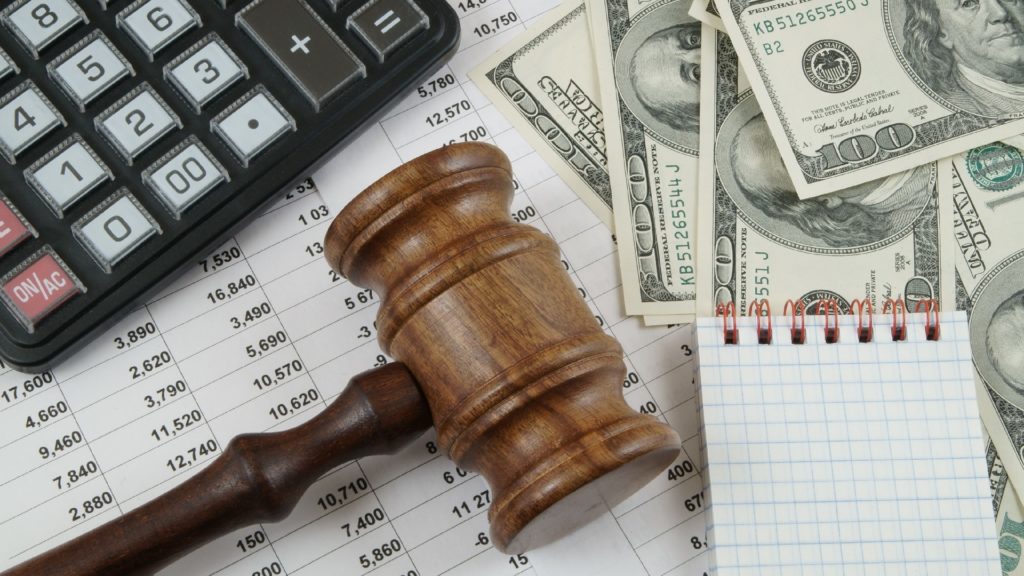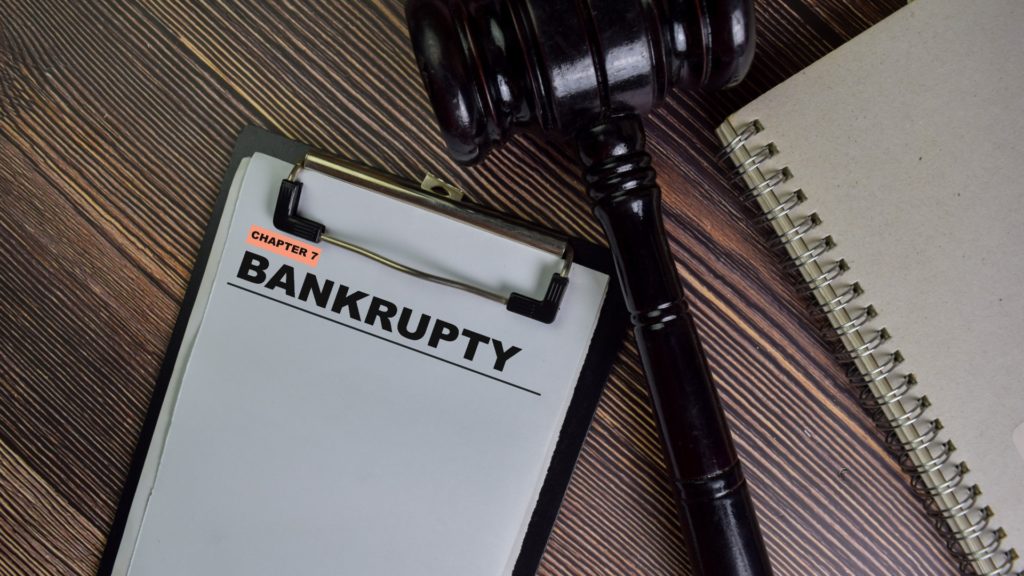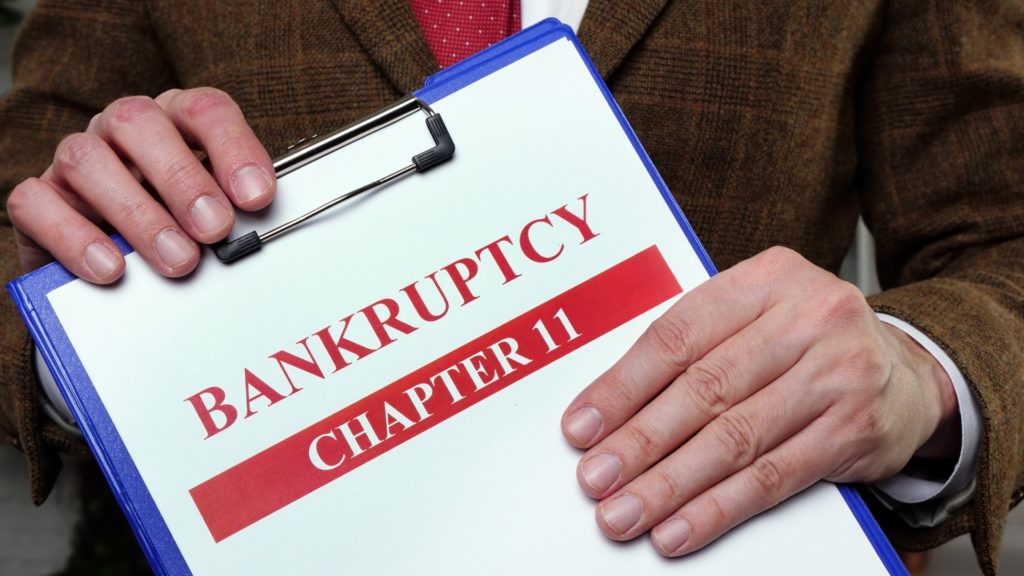
When a business runs into financial trouble that seems insurmountable, bankruptcy is sometimes the best option for restructuring or getting rid of debt. Knowing whether it’s the right thing for your business can be challenging, so it’s important to speak with an experienced Texas bankruptcy attorney to discover all your debt relief options. For more than 15 years, the debt lawyers at Leinart Law Firm have helped business owners and individuals throughout north Texas get a fresh financial start. Understanding the types of business bankruptcy and how they work in Texas can help you make informed decisions about your company’s finances.
Common Types of Business Bankruptcy in Texas

There are several different types of business bankruptcy. It’s important to be clear on the differences between them to determine the impact bankruptcy may have on your business and personal finances. When deciding which type of bankruptcy to file, you also want to consider your business goals. Do you want to close up shop and start anew? Or would you like to get your company’s finances back on track and continue to operate? The type of bankruptcy that will best meet your needs also depends on whether your business is a sole proprietorship, a partnership, an LLC, a corporation or another kind of business entity.
Chapter 7 Bankruptcy

Chapter 7 bankruptcy is the most common type of bankruptcy filing in Texas and throughout the United States. If you are a sole proprietor, Chapter 7 may help you wipe out business and personal debts such as:
- Credit card debt
- Utility bills
- Vehicle loans
- Business loans
- Overdue accounts
- Contract disputes
- Unpaid leases
- Lawsuits and judgments
As soon as any type of bankruptcy is filed, an automatic stay is instituted, which puts a stop to all collection actions.
Chapter 7 is a liquidation bankruptcy, which means the business is closed and a court-appointed trustee liquidates non-exempt assets to be distributed to creditors to pay off as much debt as possible. In a sole proprietorship, both personal and business assets may be subject to liquidation.
However, Texas bankruptcy exemptions are some of the most generous in the country. These exemptions can help shield assets like your home, vehicles and other property, but it’s critical to have an experienced bankruptcy attorney who understands how to use them to your benefit.
Filing Chapter 7 Business Bankruptcy Doesn’t Always Eliminate Personal Liability

If you have a partnership, a corporation or an LLC, things can get much more complex. Your business will be fully liquidated, with the court-appointed trustee selling off all sellable assets to pay back creditors. To discharge corporate debts you’re personally liable for, you will have to file a personal Chapter 7 bankruptcy. It’s also important to note that partnerships, corporations and LLCs are not entitled to exemptions in a business bankruptcy.
However, If you are the sole owner of a corporation or LLC, filing a Chapter 7 personal bankruptcy may be a solution for both personal and business debt. In some cases, a bankruptcy trustee may take over a corporation or LLC and liquidate the business for the owner. In this scenario, filing Chapter 7 personal bankruptcy would rid you of personal liability for the business’s debts.
These kinds of issues require the knowledge and skill of an experienced Dallas bankruptcy attorney. The whole point of filing bankruptcy is to get out from under debt. If you don’t choose wisely, you could find yourself in a serious financial bind, even after filing bankruptcy.
Chapter 11 Bankruptcy

Chapter 11 is reorganization bankruptcy that allows financially troubled businesses to restructure their debt and repay creditors over time while continuing to operate. An automatic stay provides relief for the business while it negotiates the repayment plan with creditors.
Generally, in Chapter 11, all creditors have to agree to the proposed plan, which must be approved by the bankruptcy court. A business must show the bankruptcy judge that the repayment plan is feasible — that the business will be able to generate enough revenue to cover the repayment plan. The negotiation and approval process can take anywhere from a few months to years.
Chapter 11 bankruptcy is complex and can be costly. Having a seasoned business bankruptcy attorney guide you through the process helps ensure your rights and interests are protected and can save you money in the long run. Whether Chapter 11 will work for you depends on the size of your business and your specific circumstances. In the end, it can significantly reduce a business’s debt burden and help it continue to operate and thrive.
What Is a Debtor-in-Possession?

Unlike other bankruptcy filings, a trustee is not usually appointed in Chapter 11 cases. Instead, the business continues to operate as a debtor-in-possession under the supervision of the bankruptcy court. A debtor-in-possession acts as its trustee and has many of a trustee’s rights and responsibilities. If a creditor or the court believes the debtor-in-possession is mismanaging its assets, the court can appoint another trustee.
Chapter 13 Bankruptcy

If you’re a sole proprietor who wants to keep your business running, you may be better off filing Chapter 13 bankruptcy. Like Chapter 11, it is also a reorganization bankruptcy, but it is designed to help individuals with regular income restructure and repay their debts. Although you can file Chapter 13 as a sole proprietor, your personal and business debts must be under certain limits.
In 2021, those limits are:
- Unsecured debt limit: $419,275
- Secured debt limit: $1,257,850
To file Chapter 13, you must show that you have sufficient income to pay on your restructured debt plan for the next 3-5 years. At the end of the plan, most remaining unsecured debt is discharged.
Which Type of Bankruptcy Is Right for Me?

The best way to determine which type of bankruptcy to file is to seek the counsel of an experienced bankruptcy lawyer in Texas. Each type of business bankruptcy has different effects on your business and your credit. Generally, if your business is tanking and a repayment plan isn’t feasible, Chapter 7 can allow you to wipe your financial slate clean. Before filing Chapter 7, it’s important to remember that your business will be liquidated and shuttered. However, you won’t have creditors breathing down your neck, and you can get rid of your most burdensome debt. If you’re a sole proprietor, Texas bankruptcy exemptions will help protect most of your property, but your credit can be negatively affected for quite some time.
If you want to save your company, filing Chapter 11 or Chapter 13 may be the best option. Both let you stay in business while you pay off reorganized debts. However, Chapter 11 and Chapter 13 will have an impact on your credit as well. A debt attorney can do a comprehensive evaluation of your business and personal finances and help you understand your options.
What Happens to My Credit If I File Business Bankruptcy in Texas?

Filing bankruptcy is a big decision that can affect your credit for many years to come. Whether a business bankruptcy will have a negative impact on your personal credit depends on whether you’re personally liable for business debt. If your company is a sole proprietorship or general partnership, filing bankruptcy can affect your personal credit report for up to 10 years.
Unless you signed a personal guarantee or owe certain types of business taxes, a business bankruptcy and business debt should not show up on your personal credit report if your business is a corporation, an LLC or an LLP. A bankruptcy can remain on your business’s credit report for many years, which can impede your ability to acquire funding and credit.
Depending on the circumstances, your Fort Worth bankruptcy lawyer may advise you to try other options first, such as selling assets or property, negotiating or settling debts with creditors, getting a loan modification, renegotiating contracts, cutting non-essential expenditures and implementing other solutions.
Contact a Business Bankruptcy Attorney to Learn More

Bankruptcy law is complex, but you don’t have to go it alone. At Leinart Law Firm, our bankruptcy attorneys understand that running a business while dealing with debt is stressful and overwhelming. We can help you create an action plan to get your personal and business finances back on track and help you meet your goals. To schedule a free consultation, complete the contact form on our website, use our convenient chat feature or email us. We proudly serve clients throughout North Texas.


